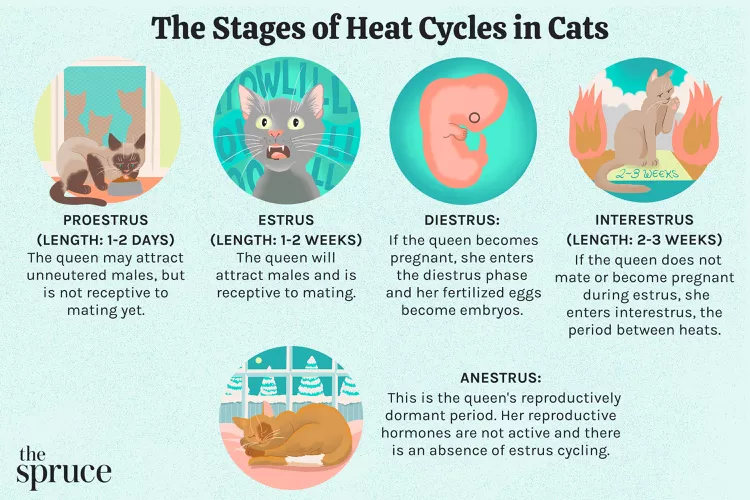
Rosemary, a woody herb, has aromatic leaves that are often used in cooking. It also has many reported health benefits, ranging from antibacterial properties to antioxidant powers, to possible anti-cancer benefits. All of this may lead you to wonder if rosemary is good for your dog too, and whether or not it is safe. Rosemary is not considered toxic to dogs, but there are some caveats.
Before giving any human foods or medications to your dog, it is always important to find out whether or not it is safe. As it turns out, many foods and medications that are perfectly fine for us can be toxic to our pets, so it is never a good idea to assume something is okay for dogs without verifying. When it comes to rosemary, it's considered non-toxic to dogs, although there are some caveats to that.
The fresh leaves are very dense plant matter with a lot of fiber, so if your dog were to consume a very large amount of fresh rosemary leaves, it could cause some tummy upset like vomiting and/or diarrhea. Most cases will resolve quickly, but you should see your vet anytime vomiting or diarrhea lasts more than 24 hours and/or if your pup seems lethargic or is not eating. Other concentrated forms of rosemary can be more toxic depending on their preparation and use.
Rosemary essential oils can be toxic due to the presence of camphor and other ingredients that may be harmful to your pup. It also depends on the route of administration as some of these ingredients may be toxic if swallowed, while others may be irritating to the skin if applied topically. Some underlying conditions may make your pup more at risk for complications.
Dogs with seizure conditions like epilepsy should probably avoid rosemary altogether. This comes from evidence in human medicine that humans with existing seizure disorders can have seizures from rosemary essential oils. While there has not been a direct study on dogs to see if the same holds true, it is better to play it safe and avoid rosemary in dogs with pre-existing seizure conditions. And if in doubt, it is always best to consult your vet before using any new products for your pup.
If you scan the internet, you will find claims that rosemary can help with a huge range of ailments and provide benefits including boosting immunity, reducing stress, and fighting cancer. It is also believed to be a potent antioxidant and has antimicrobial properties. While not all of these claims have been thoroughly researched, there are some well-documented benefits to rosemary.
Rosemary contains chemical compounds such as diterpenes, carnosol, and carnosic acid. These compounds are thought to have the ability to scavenge free radicals that cause damage to different cells in the body. Antioxidants can neutralize free radicals, protecting the cells within the body from damage. It is unknown exactly what dose would be necessary in dogs for this to have a potent effect, but giving a small amount to your pup in the form of fresh or dried rosemary leaves is generally considered safe and may provide some antioxidant benefits.
Rosemary is also thought to have potent antimicrobial properties against some bacteria and fungi. In fact, sometimes it is used as a preservative in human food due to its antimicrobial properties. In dogs, the evidence has not been as convincing as it only shows mild effects against the common microorganisms that cause infections in dogs. It may be a good supplementary treatment to use in addition to medication provided by your vet but likely is not effective enough to cure an infection on its own.
When rosemary leaf extracts are applied to dog cancer cells in laboratory settings, they show an ability to kill cancer cells and slow the growth of tumors. Whether or not this same scenario plays out inside the body has not been proven yet, but it seems to be a promising area of study.
If you want to give rosemary a try with your pup, always start with a very small amount to see how your dog responds (and check with your vet before giving the plant to your pup). Since the safest way to try it out is with fresh or dried leaves, try putting a small sprinkle of leaves into your dog’s food for a few days and monitor closely for any changes.
If you are considering using rosemary topically to treat a skin condition, consult with a veterinarian who has training in alternative or holistic medicines to ensure you use products that are safe for your dog. If you are concerned that your pup ingested too much rosemary or ate a product that was intended for use on the skin, contact your vet right away and consider calling a pet poison control hotline, such as the ASPCA Poison Control Center, to find out what you need to do.
Rosemary may have some helpful benefits to pups. While there is still much to learn about the most effective and safe ways to use it, a little bit of fresh or dried rosemary can be a good way to get started. Your pup may even enjoy the added perk of its delicious smell and taste.

Exploring the Different Types of Pet-Friendly Beaches
Are you looking for pet-friendly beaches? Learn about the different types of pet-friendly beaches, their locations, and tips for visiting them with your pet.
Exploring Pet-Friendly Wineries: Types, Locations, and More
Discover the different types of pet-friendly wineries, where to find them, and what to expect when you visit. Learn more with The Spruce Pets.
Why Is My Dog’s Eye Swollen?
If your dog's eye is swollen, she may need veterinary attention. The inflammation could be caused by allergies, an injury, or even a tumor.
Can Dogs Eat Corn on the Cob?
Dogs love chewing on corn cobs, but this can cause serious harm. Learn about the dangers of corn cobs and find out what to do if your dog eats one.
Can Dogs Eat Papaya? What to Know About Sharing This Tropical Fruit With Your Pup
Papaya is safe for dogs in moderation, and it can even provide some nutritional value for them. However, too much can cause digestive upset, and it's not suitable to share with dogs with certain health conditions.
65 Irish Cat Names
Irish cat names can pay homage to historical places, local cuisine, famous Irish actors and musicians, or other wonderful aspects of the Emerald Isle.
Feline Hyperesthesia Syndrome (FHS) in Cats
Rippling skin is more than dermal sensitivity in cats. It can be a sign of Feline Hyperesthesia Syndrome. Learn the causes, treatment, and prevention.
How Long Are Cats in Heat?
How long are cats in heat? Learn about the heat cycles of cats, also called estrus, as well as the reasons you should spay your cat.
Can Dogs Eat Raw Chicken Feet?
What are the potential health benefits of chicken feet for dogs? What are the risks?
Is Eucalyptus Safe for Cats?
Many products containing eucalyptus are not safe for cats, and it is important to be aware of the risks to your cat.
What You Need to Know About Homemade Cat Food
If you want to cook for your cat, make sure to read about the risks associated with homemade diets for cats
Can Cats Eat Peanut Butter?
Peanut butter is not toxic to cats, but it might not be the best choice of treat for them.
Can Cats Eat Cheese?
Can cats eat cheese? Is it healthy for them? How much can they eat and what should you do if you fear your cat has eaten too much cheese?
8 Flat-Faced Cats with the Cutest Smooshed Faces
These flat-faced cat breeds have a distinct and adorable appearance. Learn about their origins and traits, and the potential health risks tied to their unique facial structures.
Pictures and Facts About Bengal Cats and Kittens
Bengal cats are a cross between wild cats and domestic cats. Learn more about what they look like and pictures of this beautiful spotted breed.
Top 10 Big House Cats
Larger cat breeds, like Maine coons and savannahs, deserve just as much love as their petite counterparts. These big house cats tip the scales.
Cairn Terrier: Dog Breed Characteristics & Care
The cairn terrier is a spunky, affectionate, and intelligent dog from Scotland. The breed became famous when one played Toto in The Wizard of Oz. Learn about the temperament, history, health, and care needs of the cairn terrier dog breed.
Reasons Why Dogs Grind Their Teeth
Some dogs grind their teeth. Learn why dogs grind their teeth and if it can be harmful. Find out what to do about teeth grinding in dogs.
This Is Why Some Dogs Lean on People
Certain dogs really love leaning on their humans. What does this mean? Find out why dogs lean on people and if this is ever a problem.
Can Dogs Get Depression? How to Help Your Sad Dog
Can dogs get depression? Learn about the signs of depression in dogs and find out how to help your sad dog.